 Punters are being invited to get all interactive with the BBC’s TV and radio schedules as part of their Backstage experiment. The call to action was trumpted at the London hosted Open Tech grass roots conference that ran at the weekend.
Punters are being invited to get all interactive with the BBC’s TV and radio schedules as part of their Backstage experiment. The call to action was trumpted at the London hosted Open Tech grass roots conference that ran at the weekend.
As we reported in May, BBC’s Backstage project gives coders, computer program writers and graphics types the opportunity to bend and twist BBC digital content into new applications or Web-based prototypes that can be shared with others.
Developers and designers are now being asked to dream up innovative ways of using TV and radio schedules via a BBC competition.
“We want people to innovate and come up with prototypes to demonstrate new ways of exploring the BBC’s TV schedule,” said backstage.bbc.co.uk project leader Ben Metcalfe.
Metcalfe suggested that those taking part might be interested in combining schedules with Web search services, using online social bookmarking managers which let people collect, organise, and share their favourite Web links easily.
He also proposed that developers might like to fiddle about with the TV schedule data mixing it with other social elements, such as recommendation systems for friends and alert systems, or combining schedules with other Web data to serve up genre-based programme searches or listings.
 The BBC has already received more than 50 prototype ideas for using BBC feeds and content for non-commercial purposes since the project’s launch in May.
The BBC has already received more than 50 prototype ideas for using BBC feeds and content for non-commercial purposes since the project’s launch in May.
Backstage aims to tap into the resources of the distribution channels and knowledge networks already used by big companies such as Google and Yahoo, who were quick to realise the value of releasing content tool kits for developers to create applications with.
“Companies are waking up and realising that they need to have a conversation with their audience,” explained Mr Metcalf.
“The BBC has a good opportunity to take the lead in that, and others are realising it has its benefits too.”
The competition runs until 5 September, with the winner being invited to take the proposal forward with the BBC.
As we’d reported before, we think that Backstage is a great idea … we just wish they hadn’t used the word Remix – it’s really just a big too much, jumping on the blogging bandwagon. The idea is strong enough with having to resort do that.
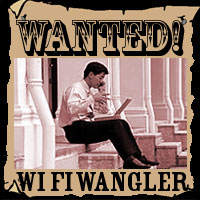 A British court has fined a man £500 ($870, €720) for using a residential wireless broadband connection without permission.
A British court has fined a man £500 ($870, €720) for using a residential wireless broadband connection without permission.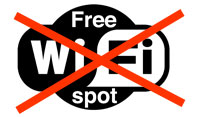 We have to say this seems a little harsh as there appears to be no evidence that there was any hostile motive behind his actions.
We have to say this seems a little harsh as there appears to be no evidence that there was any hostile motive behind his actions. The long-awaited results from the Welsh Digital TV trial were published today.
The long-awaited results from the Welsh Digital TV trial were published today.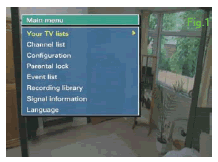 The digital signal was switched on in November 2004, running simultaneously with current analogue for three month.
The digital signal was switched on in November 2004, running simultaneously with current analogue for three month. Transmission and Coverage – No one lost their TV service during the trial. Only three homes, which were previously in poor reception areas, could not receive the digital service and these were given a digital satellite service. Broadband was introduced during the trial and is seen as an alternative form of delivery to satellite.
Transmission and Coverage – No one lost their TV service during the trial. Only three homes, which were previously in poor reception areas, could not receive the digital service and these were given a digital satellite service. Broadband was introduced during the trial and is seen as an alternative form of delivery to satellite.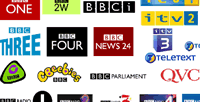 Content – Having an EPG went down well with the residents, particular when they used it to record programs on their PVR. The trialists also enthused about the ability to receive extra TV channels – after all the major benefit to consumer if the expanded choice they will be given.
Content – Having an EPG went down well with the residents, particular when they used it to record programs on their PVR. The trialists also enthused about the ability to receive extra TV channels – after all the major benefit to consumer if the expanded choice they will be given. Armchair football fans around Europe will soon be able to enjoy live Champion’s League matches over the Internet and mobile phones.
Armchair football fans around Europe will soon be able to enjoy live Champion’s League matches over the Internet and mobile phones. Champions League coverage in the UK is provided by BSkyB and ITV (both of whom look likely to retain their current rights), and the Internet simulcasts could provide a honey pot for new revenue streams with advertising and betting partners.
Champions League coverage in the UK is provided by BSkyB and ITV (both of whom look likely to retain their current rights), and the Internet simulcasts could provide a honey pot for new revenue streams with advertising and betting partners. BSkyB has already announced its commitment to
BSkyB has already announced its commitment to  BT has announced that it will be doubling the speed of its entry-level broadband service.
BT has announced that it will be doubling the speed of its entry-level broadband service. BT’s generosity knows some bounds though, with its no frills package retaining its monthly usage limit at 1 gig.
BT’s generosity knows some bounds though, with its no frills package retaining its monthly usage limit at 1 gig.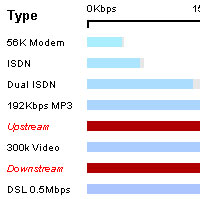 This is the second free upgrade that BT has introduced, with the telecoms giant upping the speed for all of its retail broadband customers back in February.
This is the second free upgrade that BT has introduced, with the telecoms giant upping the speed for all of its retail broadband customers back in February. I quickly learnt that not only was I paying more than most, but my BT connection was as swift as a sleepy sloth on a hot day compared to the rocket-like speeds quoted by others.
I quickly learnt that not only was I paying more than most, but my BT connection was as swift as a sleepy sloth on a hot day compared to the rocket-like speeds quoted by others.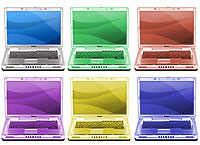 The doomsayers were predicting a slow year for PC shipments, but a continuing shift to notebooks and falling PC prices have made it a bumper second quarter for the worldwide PC market, according to research companies IDC and Gartner.
The doomsayers were predicting a slow year for PC shipments, but a continuing shift to notebooks and falling PC prices have made it a bumper second quarter for the worldwide PC market, according to research companies IDC and Gartner.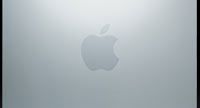 The company enjoyed big sales outside the US and remains the market share leader in many countries throughout Europe.
The company enjoyed big sales outside the US and remains the market share leader in many countries throughout Europe. KidsOK, a tracking service that lets parents locate their child using a mobile phone, has gone on sale in the UK today,
KidsOK, a tracking service that lets parents locate their child using a mobile phone, has gone on sale in the UK today,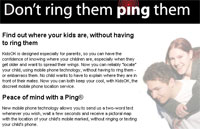 The bit that may strike fear into parents trying to foist these phones on their offspring is that fact that kids have to opt in to the KidsOK service and they can turn off the service any time they like.
The bit that may strike fear into parents trying to foist these phones on their offspring is that fact that kids have to opt in to the KidsOK service and they can turn off the service any time they like.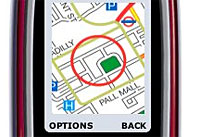 Larger families can enable further handsets on payment of £4.95 p.a. per handset (~US$8.75, ~€7.25). Further ‘pings’ are purchased in bundles of 20 from KidsOK for £9.95 (~US$17.5, ~€14.5).
Larger families can enable further handsets on payment of £4.95 p.a. per handset (~US$8.75, ~€7.25). Further ‘pings’ are purchased in bundles of 20 from KidsOK for £9.95 (~US$17.5, ~€14.5).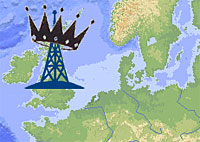 A report from consultancy firm BroadGroup has revealed that the deployment of wireless hotspots in Europe have soared by 67 percent in the six months up to May 2005.
A report from consultancy firm BroadGroup has revealed that the deployment of wireless hotspots in Europe have soared by 67 percent in the six months up to May 2005.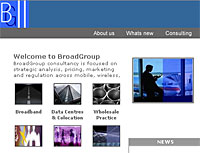 As many a disgruntled transatlantic traveller may tell you, Wi-Fi access in Europe still remains considerably more pricey than the US market, although the report suggests that “price declines are continuing to trend downwards” (I think this means, “prices are going down”).
As many a disgruntled transatlantic traveller may tell you, Wi-Fi access in Europe still remains considerably more pricey than the US market, although the report suggests that “price declines are continuing to trend downwards” (I think this means, “prices are going down”).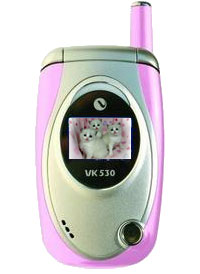 With a survey that could be described as pointless fluff at best and patronising drivel at worst, Vodafone D2 have trotted out the details of their ‘Women and Mobile Phones’ market research survey.
With a survey that could be described as pointless fluff at best and patronising drivel at worst, Vodafone D2 have trotted out the details of their ‘Women and Mobile Phones’ market research survey. Neatly half of women use the camera on their phone with 37 percent of respondents citing the provision of Bluetooth for wireless data transfer as important.
Neatly half of women use the camera on their phone with 37 percent of respondents citing the provision of Bluetooth for wireless data transfer as important.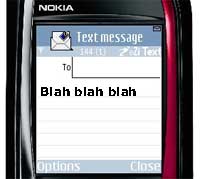 Us in UK-land have long been fans of SMS messaging, with button-pushing Brits banging out 3 million text messages every hour, with 2.5 billions text being sent in January 2005 alone.
Us in UK-land have long been fans of SMS messaging, with button-pushing Brits banging out 3 million text messages every hour, with 2.5 billions text being sent in January 2005 alone.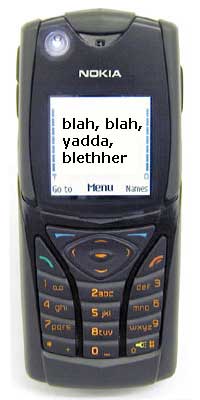 GSM operator T-Mobile was particularly chuffed with its performance as its customers belted out a total of 3.6 billion messages during Q1 2005 – that works out at around 67 texts per subscription per month.
GSM operator T-Mobile was particularly chuffed with its performance as its customers belted out a total of 3.6 billion messages during Q1 2005 – that works out at around 67 texts per subscription per month.